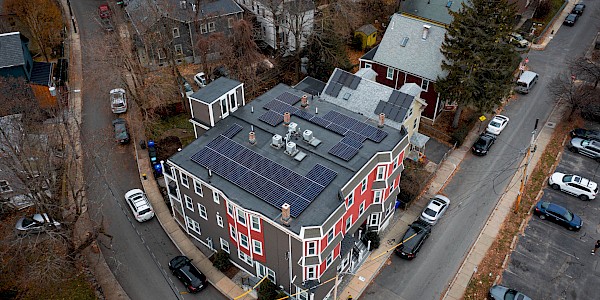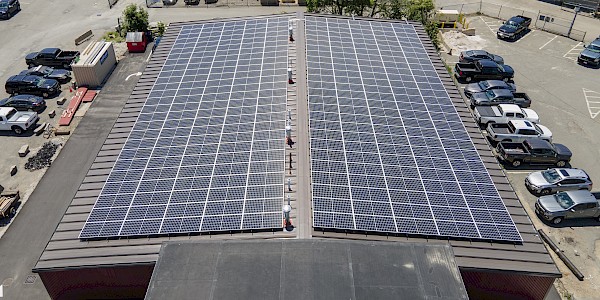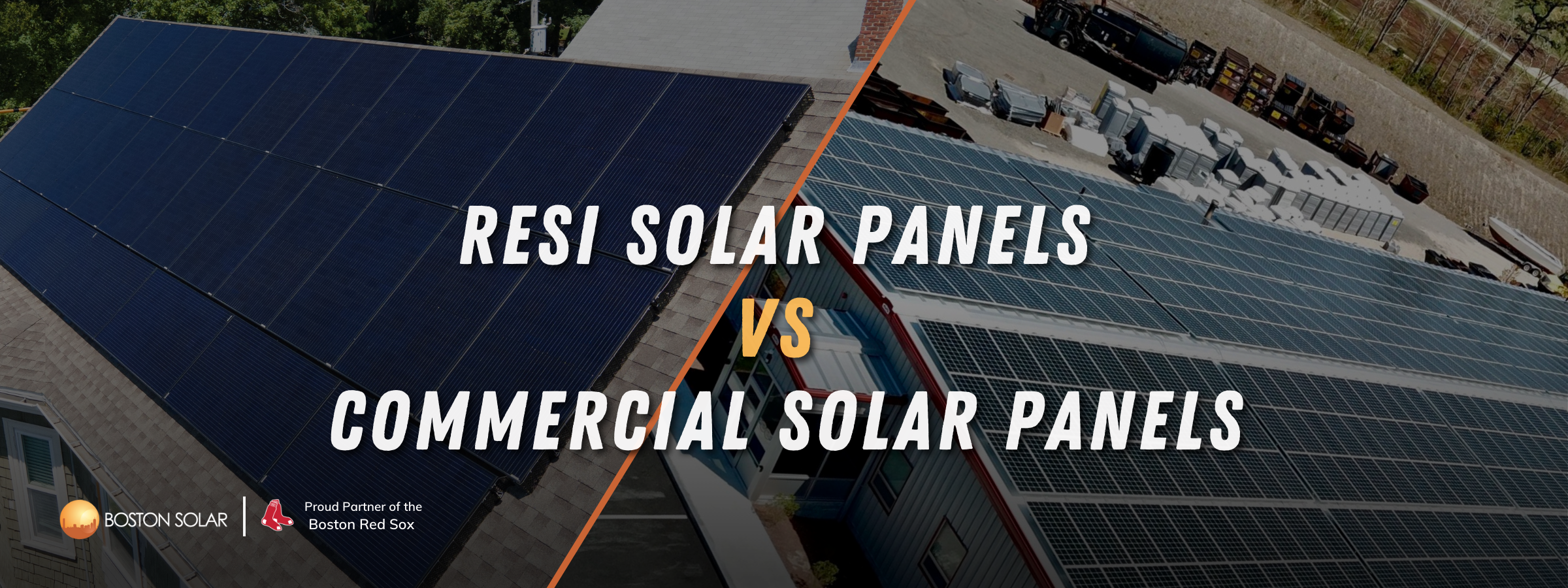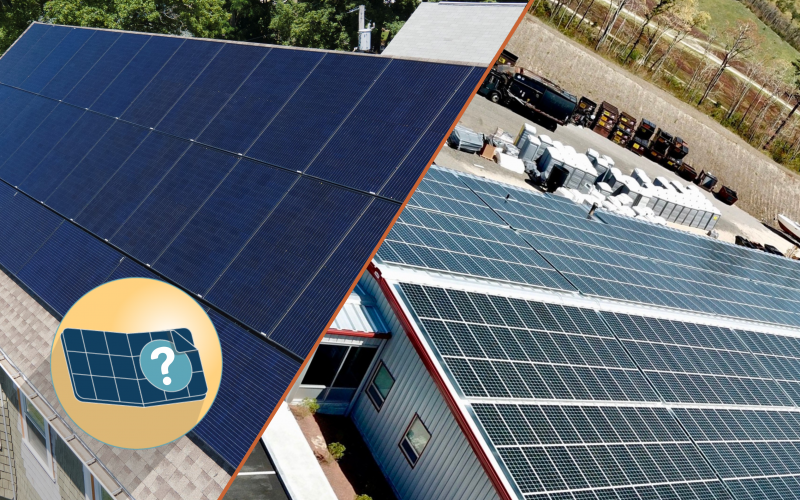Key Differences Between Commercial & Residential Solar Panels
Apr. 21, 2023
Installing solar panels has a wide range of benefits for homeowners and businesses alike. But while they offer similar benefits, residential solar panels and commercial solar panels are not exactly the same.
Here are the key differences you should be aware of when adding rooftop solar to your commercial building.
Size: Commercial Solar Panels are Bigger & More Powerful
Solar panels are made up of photovoltaic (PV) cells, which capture the sunlight that’s needed to generate electricity. The more cells a solar panel has, the more power it can produce.
Commercial solar panels have more PV cells than residential solar panels because they need to produce enough power for an entire commercial operation rather than a single household. Most residential solar panels have 60-65 PV cells while commercial solar panels can have 70 or more.
To accommodate for the additional cells, commercial solar panels are physically larger than residential panels. Their size makes commercial-grade panels impractical for standard houses but ideal for commercial operations that have plenty of roof space.
Design: Commercial Solar Systems are More Complex
Commercial solar energy systems are not as straightforward as residential systems when it comes to system design. The technical considerations are more complex since the system is much larger and will likely involve equipment with high electrical ratings. You also need to consider the local electrical lines more carefully with a commercial solar panel system to determine whether they can handle the solar feedback.
Installation: Commercial Solar Installation Takes Longer
As with most construction projects, commercial solar installations take longer than residential installs. There are a few things that slow down the installation process on the commercial side, including the scale and technical complexities, but permitting and approvals are at the top of the list. Commercial projects—esepically utility-scale projects—have more regulations to meet and the approval process can take a while.
Once the design is complete and the system is approved, however, the actual installation of the panels is usually straightforward. Commercial buildings tend to have flat, easy-to-access roofs, which makes for an efficient installation.
Don’t Miss Out on the Benefits of Commercial Solar
There are a lot of complexities involved in a commercial solar installation, which is why it’s so important to work with an experienced, reputable commercial solar panel company. We can help you take advantage of all the benefits of a commercial solar system:
Boston Solar is the leading commercial solar company in Massachusetts with over 10 years of experience and 5,000+ completed installations. We will design a system that maximizes your available roof or ground space, manage the permitting and approval process, and keep your project moving forward as quickly and efficiently as possible at all times.
Learn more about commercial solar installation. Call 617-858-1645 or contact us online to get started.




